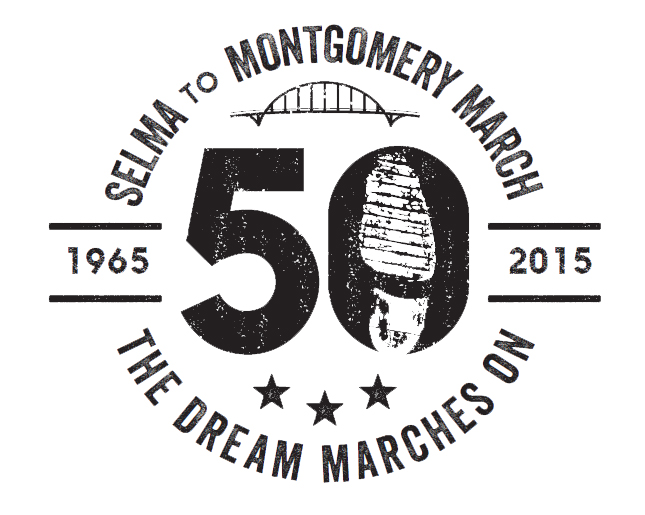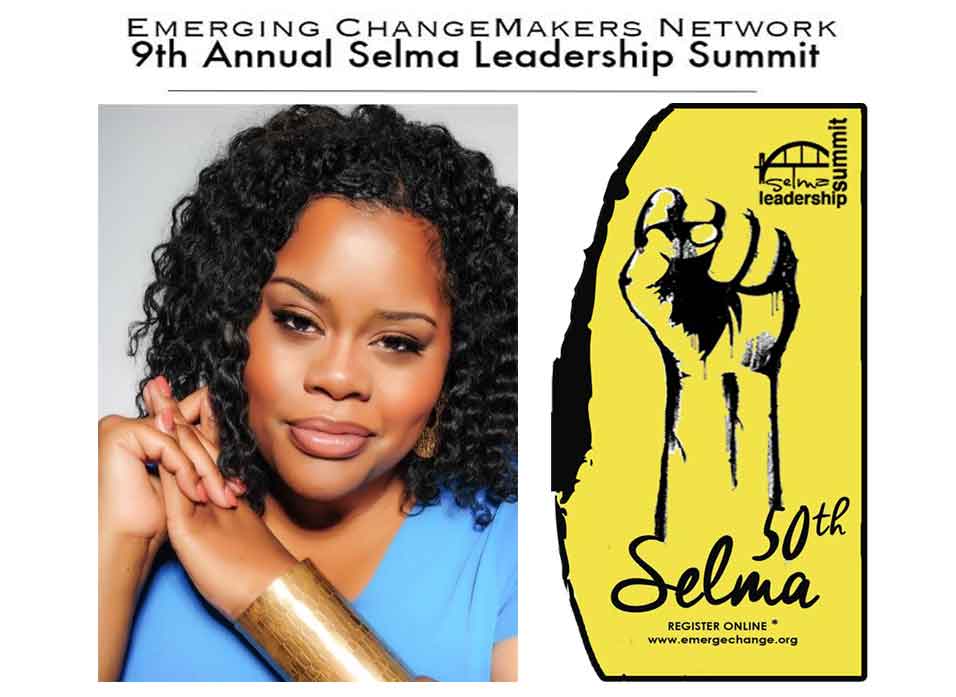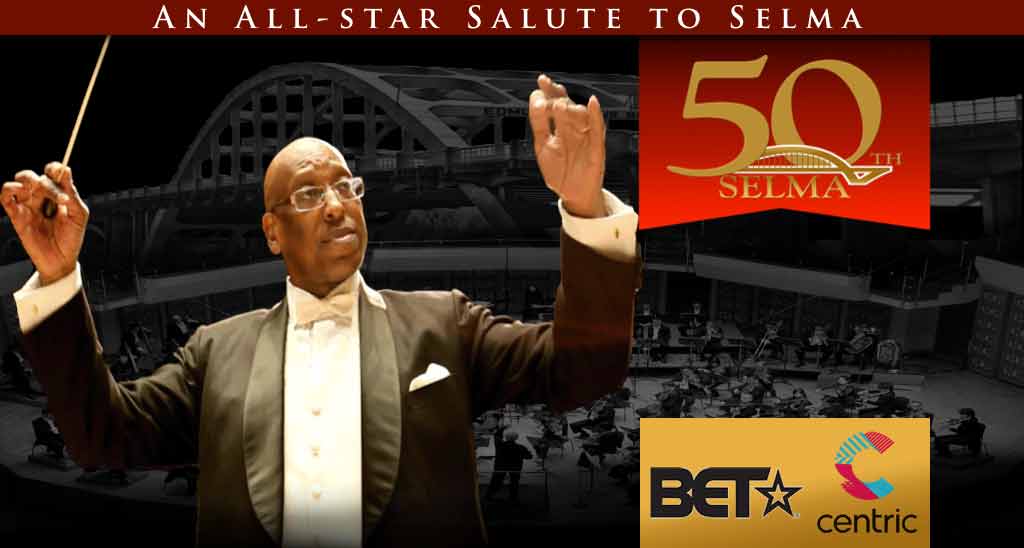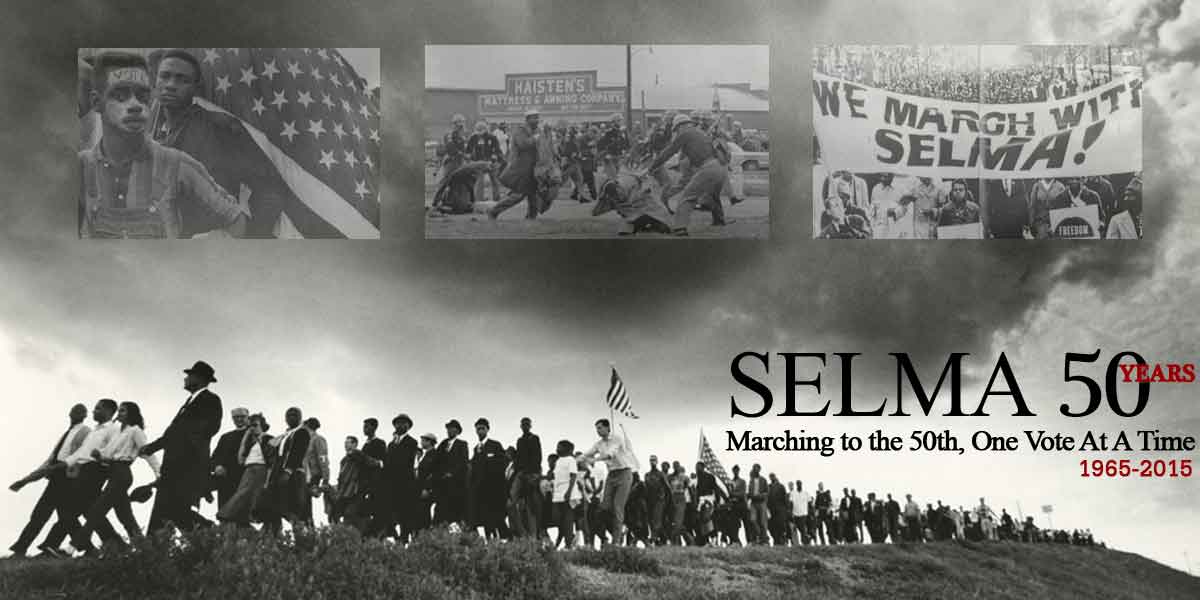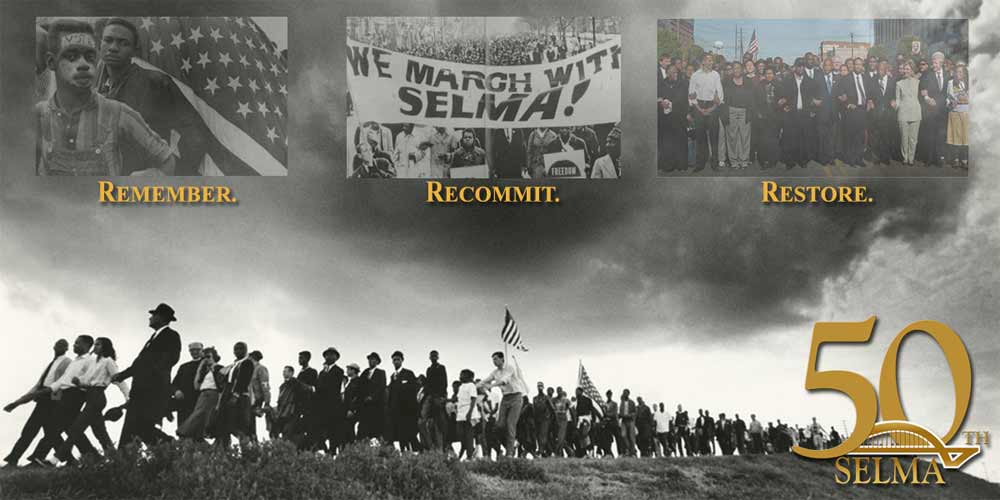Q: Why did you start the annual Selma Leadership Summit during the commemoration of Bloody Sunday?
A: Our relationship to Bloody Sunday was the first thing that Emerging Change Makers Network did. In fact, the summit predates the official founding of our organization. We started the summit as a way to acknowledge and uplift the contributions of emerging leaders who, like Dr. Martin Luther King, Jr., and Rep. John Lewis and many others, who were the younger leaders of their day.

Q: How was this event a further extension of what Emerging Changemakers Network was already doing?
A: We wanted to show emerging leaders that they were the voices and the leadership needed to make impactful change. Following Hurricane Katrina, we saw the importance of lifting up and networking indigenous voices because they understood the complexities of their community and because of their experience in knowing how to push back against systems of oppression. Our organization understood that developing those leaders and giving them a strong network to help advance their “change-making” ideas would make the difference in moving their strategies forward.
Q: What was the biggest challenge you faced as you grew your organization, and how did you overcome it?
A. The biggest challenge we faced was that, while our communities were facing very difficult conditions, it’s hard for younger leaders to understand the structural relationships to the problems they encounter. Further compounding this is that younger people think race and racism are outdated concepts with little bearing on their lives today. Yet when we look at structural inequity, race becomes a variable that we absolutely must acknowledge. But getting emerging leaders to make structural changes, to many institutions, is hard work. It’s hard to teach this concept, and it’s not visually interesting. That was hard for us. We’ve overcome this by focusing on economics and the ways that communities don’t have access to various forms of capital. When we say “capital” we mean financial capital, but we also mean political, social and environmental capital too.
Q: You said watching the movie “Selma” helped you better understand the strategy behind the Civil Rights Movement. How did the movie, as well as your own understanding of the movie, help you strengthen your organization?
A: The movie “Selma” was a powerful piece of filmmaking. We took our organizations Selma Leadership Summit planning committee to the movie theater to see the film. The storytelling was able to walk the line between celebrating the heroes of Selma, who weren’t just Dr. King, and honoring the people who some may not have known. There was a humanness to the film that allowed me to see there was some strategic thinking taking place and there was some “seizing of the moment”. Sometimes we over-romanticize this movement and think that everything was laid out and planned, but it wasn’t. It strengthens my work to remember that there are lessons to be learned in the failures. In the film, they touch on how their efforts in Albany, GA had not been as successful as they wanted. This is something we don’t often acknowledge, that in all things there are lessons to be learned. And that there is a lot of ground work that has to be laid before people see the win.
Q: How do you think current citizen groups and emerging grassroots organizations, which are fighting against police brutality and for economic inclusion, can incorporate similar strategies from Selma and the Movement into current-day struggles?
Q: The one thing that any movement effort can do is remember that you have to use all talents in order to build a movement. The idea that a movement is just about young people or just about older people is wrong. If it’s just about black people or just about white people, it’s wrong. A movement has to instruct and encourage everyone to see himself or herself in the injustice in order for them to then see themselves as a needed piece of the solution.
Q: What is the biggest challenge our communities of color face today, and based on your experiences, what are some ways you think we can overcome them?
A: That’s a huge question. I think our biggest challenge is not knowing ourselves. We have been taught by the very system that has been oppressive. How can we expect that our thinking is not mirroring that same oppression? We have to unlearn a lot. We have to study a fullness of African and African Diaspora teachings. We have to give our children outside instruction on African studies in primary school. I would suggest that we have Saturday School that provides information, fun and competition for all. I wouldn’t limit this to just children either; I would suggest an adult track too. I would add that many people have received this type of education. Maybe they got this by joining a black studies group, maybe they elevated their thinking through their spiritual growth, or maybe they had a very progressive college professor or their parents taught them. Either way, I think we need to formalize this type of education in every community. Ultimately, when we know ourselves better, the better able we are able to build more solid relationships within our families and our community.
Learn more about the 9th Annual Selma Leadership Summit at ECN’s website, www.emergechange.org/selmasummit2015/


